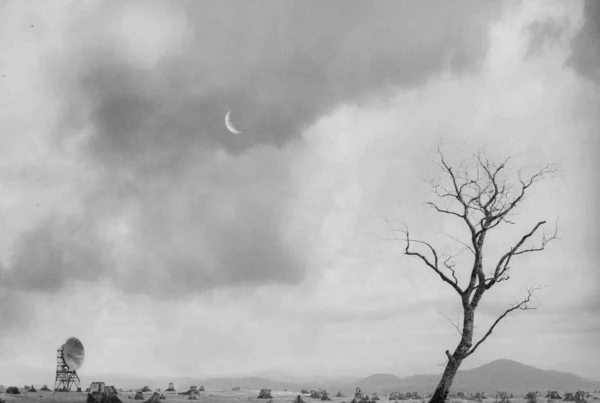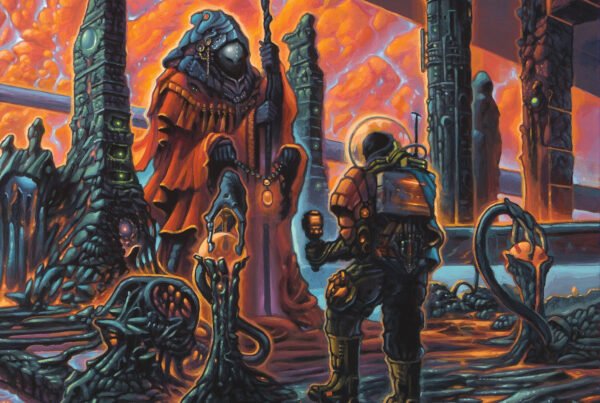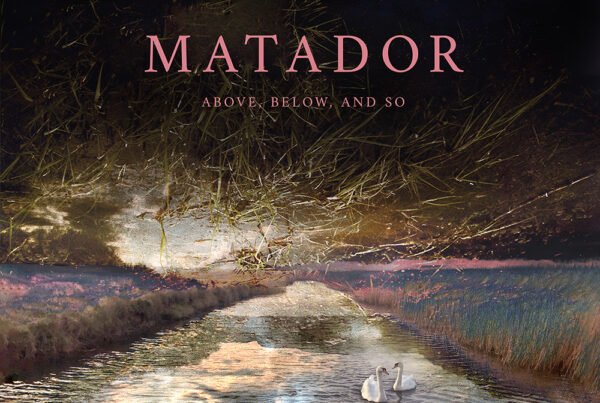Ballaké Sissoko, the Malian kora master, delivers a gorgeous record featuring collaborations with a diverse range of artists from Africa and Europe.
Release date: April 9, 2021 | Nø Førmat! | Bandcamp | Facebook
Ballaké Sissoko is a griot from Mali and a master of the kora, a traditional harp-like West African classical instrument. He is the son of Djelimady Sissoko from The Gambia, who was a notable kora player in his own right. Sissoko has been playing the instrument since a very young age and joined the Ensemble Instrumental National du Mali at 13. He came to prominence in 1999 after being featured on a release with his cousin, the great Toumani Diabate. Since then, Sissoko has established himself as one of the world’s preeminent kora players.
The kora is a beautiful instrument. It sounds similar to a harp, but the resonance chamber is a calabash gourd covered in cow skin, which provides a rich, earthy sound. Its 21 strings are arranged with each octave on alternate sides of a hardwood neck, so that it can be played fluidly with both hands. The rhythm is usually played with one hand while the notes are picked in arpeggios with the other. When played well, the sound is crisp and clean, and very pleasing.
Now based in France, Sissoko has set his sights on bringing the classical music of West Africa to the world via cross-cultural collaborations. Over the past 20 years he has recorded with US bluesman Taj Mahal, Italian composer Ludovico Einaudi, and with several traditional string musicians from Morocco, Madagascar, Greece, Afghanistan and India. The spirit of intrepid collaboration continues on his latest release: Djourou.
Unlike other kora masters, Sissoko doesn’t often play his instrument in a way that reveals his classical chops. He’s mastered the art of ‘less is more’, where the notes he doesn’t play are as important as the ones he does. His music has a meditative quality, the pulsing rhythms are decorated in dense cascades of notes one minute and almost complete silence the next. It’s a very emotional listen.
Opener “Demba Kunda” gives the impression that this is a straight-forward instrumental set of solo kora tunes. It’s a touching tribute to a small town in The Gambia with the same name. The opening note is a single string that slowly drifts away before a second strum, and then a third, leading to a gentle flurry that builds and eventually settles into a pulsating rhythm. The other solo track on the record is “Mande Tabolo”, which builds tension with repeated phrases that intensify only to be relieved with flurries of notes and a repeated, almost imperceptible groan of appreciation from Sissoko who obviously feels the relief as well.
But Djourou is much more than a solo-instrumental record. Sissoko’s collaborators here are diverse: a classical clarinettist, singer-songwriters, a rapper, and a rock group from France, Italy, Britain, Mali, and The Gambia. The title track is where the album begins to show its true colours – it’s a duet with fellow kora player Sona Jobarteh. The interplay between the two is timeless and a reminder of the folk traditions that gave birth to this music centuries ago. Sona Jobarteh, The Gambia’s first professional female kora player, begins with some lovely phrasing, which is then replied to by Sissoko with impressive runs in a conversational exchange. They eventually settle into a charming combination where Sissoko plays the rhythm and Jobarteh lays intricate finger runs over the top and sings beautifully.
This level of connection continues throughout Djourou. “Jeu sur la symphonie fantastique” features the classical clarinettist Patrick Messina and frequent collaborator Vincent Segal on cello, and is a wonderful display of cross-cultural classical music. “Frotter les mains”, or ‘rubbing the hands’ in English, with Malian-born French rapper Oxmo Puccino is a surprise success. Puccino comes from a lineage of Blacksmiths in Mali, and Sissoko is descended from traditional kora players. The song celebrates their shared appreciation for hands and their use in music, storytelling, craftsmanship, and the arts. Puccino’s delivery here is more folk storytelling than rapping in its modern form, and it harks back to the traditional use of the kora as a backing instrument for folk tales.
The stunning voice of Italian-English singer-songwriter Piers Faccini is another highlight on “Kadidja”. It’s a delicate instrumental, and Faccini harmonizes beautifully, sounding like a younger Salif Keita. Keita himself appears on “Guelen”. At 72, he’s beginning to sound a little rough around the edges, but ‘The Golden Voice of Africa’ is still remarkably warm and enveloping.
The only feature that doesn’t quite work here is French singer-songwriter Camille on “Kora”. She sings in a hushed tone that seems ad-libbed, not providing much value to the track, which features some beautiful strings nonetheless.
Closer “Un vêtement pour la lune” features French rock band Feu! Chatterton and is a surprisingly subdued affair. A meditation almost 10 minutes long, with vocalist Arthur Tebou switching from spoken work to a gentle folk delivery and building to a passionate climax, it’s a fitting finale to an impressive record.
With Djourou, Ballaké Sissoko has once again shown that the kora is not only a beautiful instrument, but it’s also a versatile one. The collaborations here work regardless of style, because of the musical connections of the artists. Sissoko feels his instrument, and when combining with others similarly in tune to their creations, the results are exceptional.






